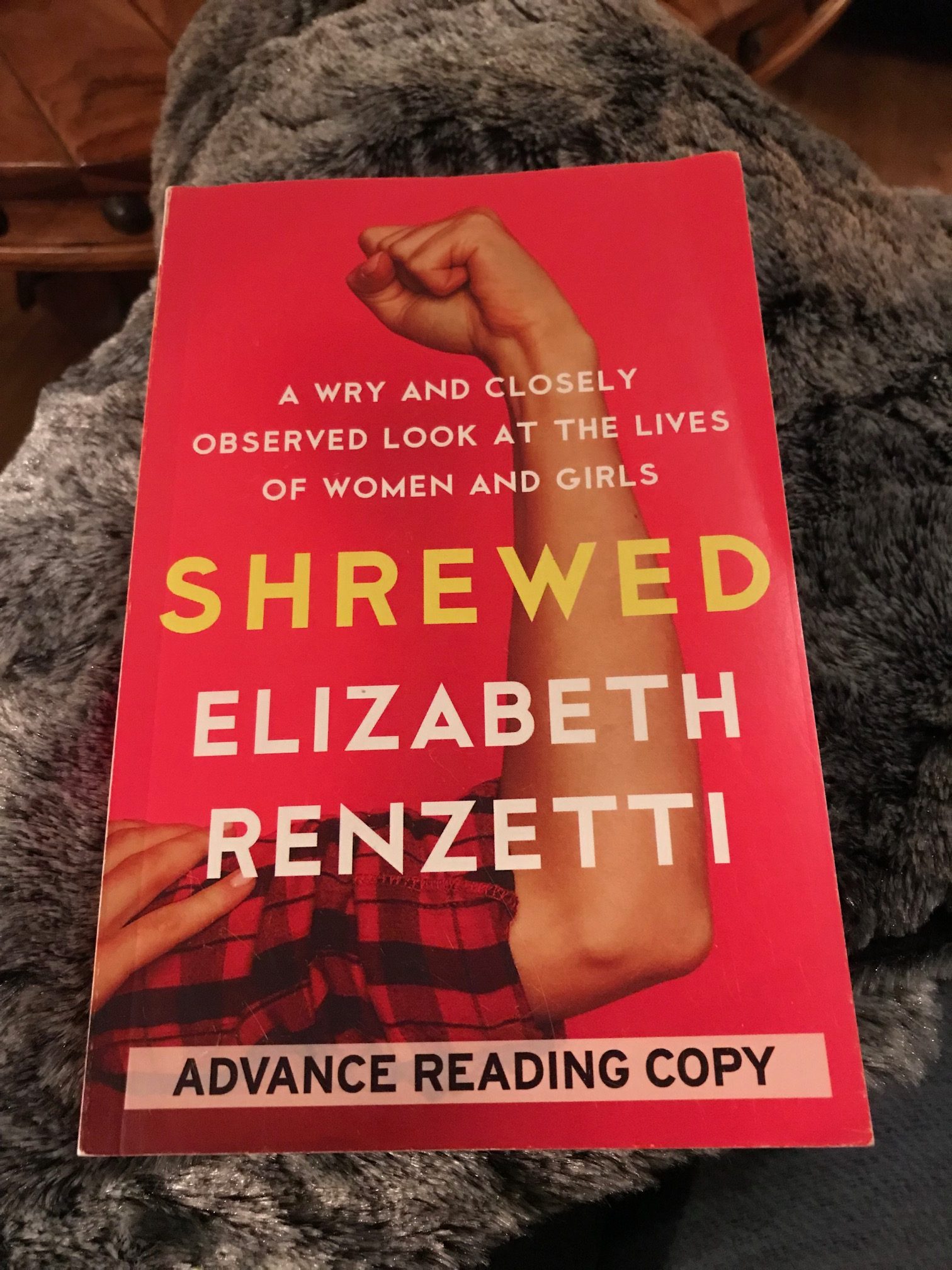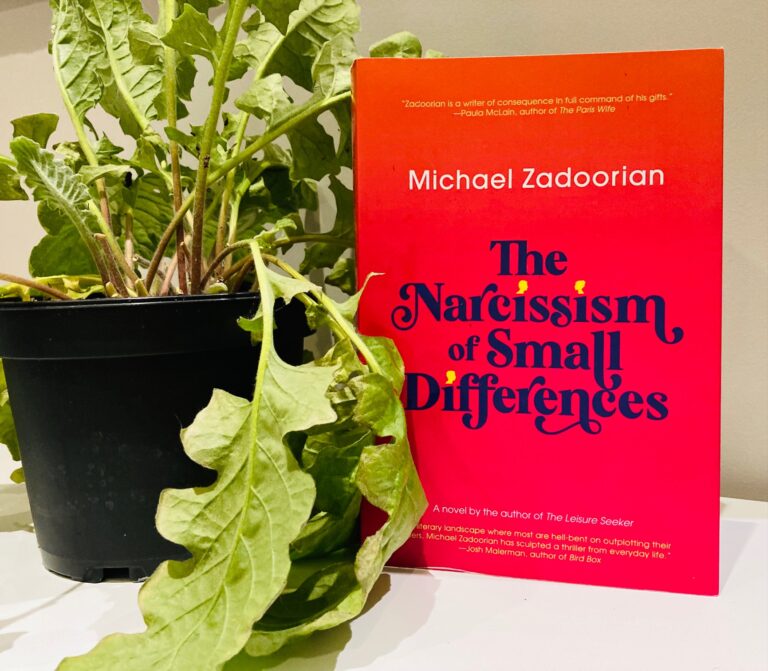Book Review: Shrewed by Elizabeth Renzetti

I know some women may hear of a book about feminism and think ‘why do we need another one of these, we’re all equal!’ but it’s not until you read books like this that you realize we still have so far to go. If that doesn’t sound appealing then maybe this will: Renzetti writes Shrewed as if she’s talking to a close girlfriend; you will laugh and cry as you work your way through these delightfully entertaining essays.
The essays are only really linked by theme; women and our role in this world. Some are about women Renzetti has interviewed, others are deeply personal, but they all contain a subtle lesson about what it is to be female today. Her observations aren’t groundbreaking, but this is why I connected so easily to her authorial voice. This may be a controversial statment, but pronouncements about being ‘female’ in this world are rarely unique; they simply aren’t voiced clearly enough, or often enough for people to take a more serious look at the inequalities women face each and every day. And I know as I type this, many women will claim they face no such inequalities, but that simply isn’t true; we are just used to them, and dare I say, comfortable with them, so that many people (men AND women) don’t see the need to fight for further equality.

Renzetti deals with one subject in particular that I believe has been avoided, or simply overlooked in the past, and this is the inequality within the women’s movement or the ‘whiteness’ of the most visible feminism. Shrewed makes the very astute, and (for some) hard to swallow argument that we need to ‘pass over the grievance microphone’ (p. 207 of ARC) to women of colour, or quite simply those without the privileges we enjoy or take for granted. In some cases, even turn down a chance to speak publicly if someone with a less-publicized voice can take your place instead. A few months ago, I read another book about feminism that Renzetti references, which again, stresses the importance of elevating every women’s voice, not just our own, which seems like a simple yet important solution to this problem.
Being a young mother myself, Renzetti’s thoughts on motherhood and work life balance rang true for me, and as I’ve mentioned before on this blog, this always gives me as sense of enormous relief when I realize I’m having the same thoughts as many other mothers out there. She nails one of my anxieties perfectly: “It’s scary to step off the professional carousel, however briefly, and to know that it will not slow down for your return” (p. 82 of ARC). By doing what’s best for me and my family (which is by no means the best way for anyone else) is the way I’m asserting my autonomy at this point in life. This phase will pass, and yet, I can’t help but wonder if the growing number of stay-at-home dads are having the same existential crisis. Anyone care to share?

Although this review is turning out to have quite a serious tone, I do want to stress the fact that this book is extremely funny. I loved reading every essay, even when it dealt with scary or sad subject matter because the clever little witticisms and self-deprecating humour are just too fun to not indulge in. Renzetti is a journalist with the Globe and Mail, and I’m making an effort to seek out her writing from now on because I’ve learned so much from her in the best kind of way.




Ah, I’m one of the women who thinks we’ve pretty much achieved equality, though obviously I only mean in our own small corner of the world. You only have to look at the make-up of government in Scotland to know that women are no longer held back by gender – white indigenous women, at least (who in our little society still make up the vast majority). I’d love to see feminists stop concentrating so much on minor remaining inequalities in their pampered western lives, and spend more of their energies working to gain the same levels of equality for women in other cultures. Truthfully, in the west, I’m more concerned about the demonization of men these days, than the subjugation of women. We seem to have stopped looking for “equality” and be looking for “victory” instead… this old-time feminist feels the movement has taken a wrong turning somewhere…
I do like the look of your fuzzy blanket, though… ;)
Yes I know what you mean FF, but you might find this book interesting nonetheless, because it addresses a lot of what you’re speaking about. However, not sure its available outside of North America yet…and isn’t that blanket fabulous? My in-laws call it ‘a thousand kittens’ because that’s what it feels like, but it is of course fake fur :)
I’ve taken ages to get to the one too: good to know it’s worth the wait! (And that blanket does look awesome. I’d love one.)
Are you steadily working your way through a stack/shelf of older ARCs, or do you just give up at a certain point?
There’s a few I’ll give up on if they don’t interest me, but for the most part I keep them around until I read them. I try to alternate-one recently released then one ‘older’, although an ‘older’ book for me is like 2017 haha
I am afraid I also fall into the camp where I think that there is far more wrong in the world than the perception of ‘inequality’ between men and women. I count myself very lucky to have been born when I was (and to clarify, I’m a bit older than you) and have the opportunities that were clearly denied to my mother’s generation. I’m afraid I think men and women are different to each other, we shouldn’t try and be the same.
I totally agree with you Cleo! These essays are quite funny though, and they do point out some things that never occurred to me in the past; again, a sign of great writing :)
I think I might need to read this one, based on your review. As another stay-at-home mom I too often wonder if I’m making the right choice and if I’m setting the right example for my daughters.
Yes! I think of that all the time. This book didn’t change my mind necessarily, but it gave me alot to think about.
“and dare I say, comfortable with them” — brave, but you will hear no arguments from me!
I had this out from the library and read the first essay, then had to return it before I could finish. However, I liked what I did manage to read. And it *is* so nice to hear other women/mothers have the same thoughts/concerns as we do!
haha I think I’m getting braver on this blog-as I get older I care less about other people’s opinions apparently :)
That’s a good thing!
:)